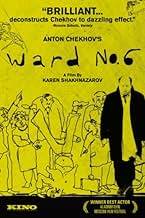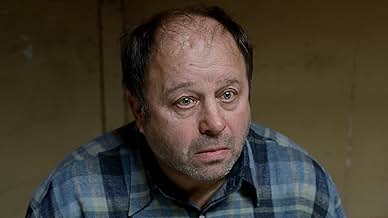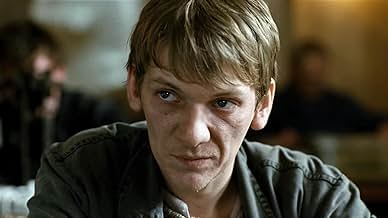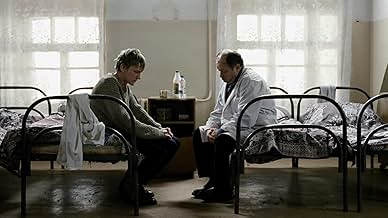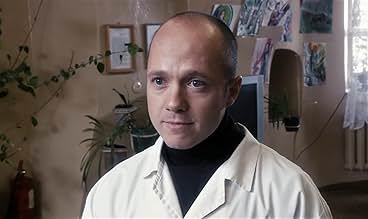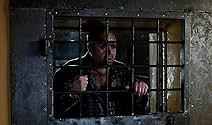Agrega una trama en tu idiomaSimultaneously nihilistic and heartening, Ward No. 6 is based on a story by Chekov, in which a psychiatric doctor becomes a patient in his own asylum. Updated to contemporary Russia, the fil... Leer todoSimultaneously nihilistic and heartening, Ward No. 6 is based on a story by Chekov, in which a psychiatric doctor becomes a patient in his own asylum. Updated to contemporary Russia, the film is a cocktail of anxieties and riddles, showcasing how easy it is to become what we fear... Leer todoSimultaneously nihilistic and heartening, Ward No. 6 is based on a story by Chekov, in which a psychiatric doctor becomes a patient in his own asylum. Updated to contemporary Russia, the film is a cocktail of anxieties and riddles, showcasing how easy it is to become what we fear most.
- Dirección
- Guionistas
- Elenco
- Premios
- 4 premios ganados y 7 nominaciones en total
- Dirección
- Guionistas
- Todo el elenco y el equipo
- Producción, taquilla y más en IMDbPro
Opiniones destacadas
Shakhnazarov seems to be a dislocated guy. Someone born within the values of the great soviet school, but who lost that context early in his career. Today he makes disembodied soviet films. And also he doesn't really represent any of the two major soviet contributions to cinema (leaded by Eisenstein and Tarkovsky, respectively). For this, i don't think i'll ever watch one of his films that does more than merely amuse me in how clever were the intentions behind it.
In this case, what he wanted to do was not novel, but it's not very well done either. He starts the film presenting us with a series of interviews to real ill people from a real mental institution. Than he delivers a fiction, with fiction characters modelled after the real ill people, and acted in the same physical place, the hospital. This is actually a very clever idea. The interviews place us in the world of the mental cases, so we need no more establishing of the world of the film. So, we get fully inside the film and that's something rarely done in such a clear effective way. The problem is that nothing else is worth your time. there is a very literature driven approach to the dialog writing, and that kills the film, which is also not carried well enough by the performances. Dialogs or acting are the things that can carry such a film. Non exists with quality here.
The closing scene is as clever as the initial one. Real patients meet fictitious ones, and they dance, with mixed pairs. Documented reality merges with fictionalized reality. The entry, and this last sequence almost redeem the lack of anything else in the film.
My opinion: 2/5
http://www.7eyes.wordpress.com
What I got was a series of clinical interviews that sort of reminded me of the beginning of District 9. The quality of the lighting and shot set up was very flat. Patients are talking to the camera about why they're institutionalized, and it's incredibly sad. Most were dropped off at an orphanage by their own parents and once they aged out, they were moved to the psychiatric facility. They've never had a chance to have a life, because their parents couldn't handle their responsibility. That is horrible! But, I actually would not have minded a more intense study of that situation. Instead, a doctor begins to lead a tour and eventually reveals that his predecessor is now, in fact, a patient. Dr. Ragin had a sort of comfortable life going. But rather than any kind of therapy sessions, he got into philosophical discourses with friends and one patient, in particular, and seemed to be spiraling into a depression about existential issues. The plot is slow. The conversations are like Crime and Punishment. Ward No. 6 is based on a short story by Anton Chekhov, so I shouldn't have been surprised, but honestly, I had a hard time staying focused. It made me sleepy. Ward No. 6 gets a 6 out of 10.
This simple story raises complex questions in our mind. What is insanity? Who defines it? The director narrates Chekov's story in a semi documentary fashion. It doesn't work too well and leaves us rather indifferent to Doctor Ragin's predicament. But I think this form of narration serves the purpose of setting Chekov's story in the contemporary context. The haunting New Year's eve dance sequence is comical yet so chilling! How easily does the State machinery makes its citizens fall in line. What if the State is a lunatic asylum? Thought provoking question for citizens who live under dictatorial regimes!
The film ends with a very intriguing sequence in which a woman who lived next door to Doctor Ragin is being interviewed. Her younger child cannot suppress her laughter and the camera lingers long over her face and that of her sister. Is it laughter of innocence or mischief? The viewer has to make his own judgement.
¿Sabías que…?
- TriviaRussia's official submission to the Best Foreign Language Film Category of the 82th Annual Academy Awards (2010).
- Citas
[first lines]
Vladimir Kozlov: Vladimir Vladimirovich Kozlov, born in 1979, on August 15.
Interviewer: For how many years have you lived here?
Vladimir Kozlov: This is... the fifth year.
Interviewer: Where did you live before you came to this nursing home?
- ConexionesFeatured in 8½ Kinoklub Dyskusiynyi (2016)
- Bandas sonorasAkapulko
Music by Igor Krutoy
Lyrics by Viktor Pelenyagre
Performed by Laima Vaikule
Played at the New Year party
Selecciones populares
Detalles
- Fecha de lanzamiento
- País de origen
- Sitios oficiales
- Idioma
- También se conoce como
- Ward No. 6
- Locaciones de filmación
- Dmitrovsky rayon, Moskovskaya oblast, Rusia(mental health nursing home)
- Productora
- Ver más créditos de la compañía en IMDbPro
Taquilla
- Total a nivel mundial
- USD 115,095
- Tiempo de ejecución1 hora 23 minutos
- Color
Contribuir a esta página


